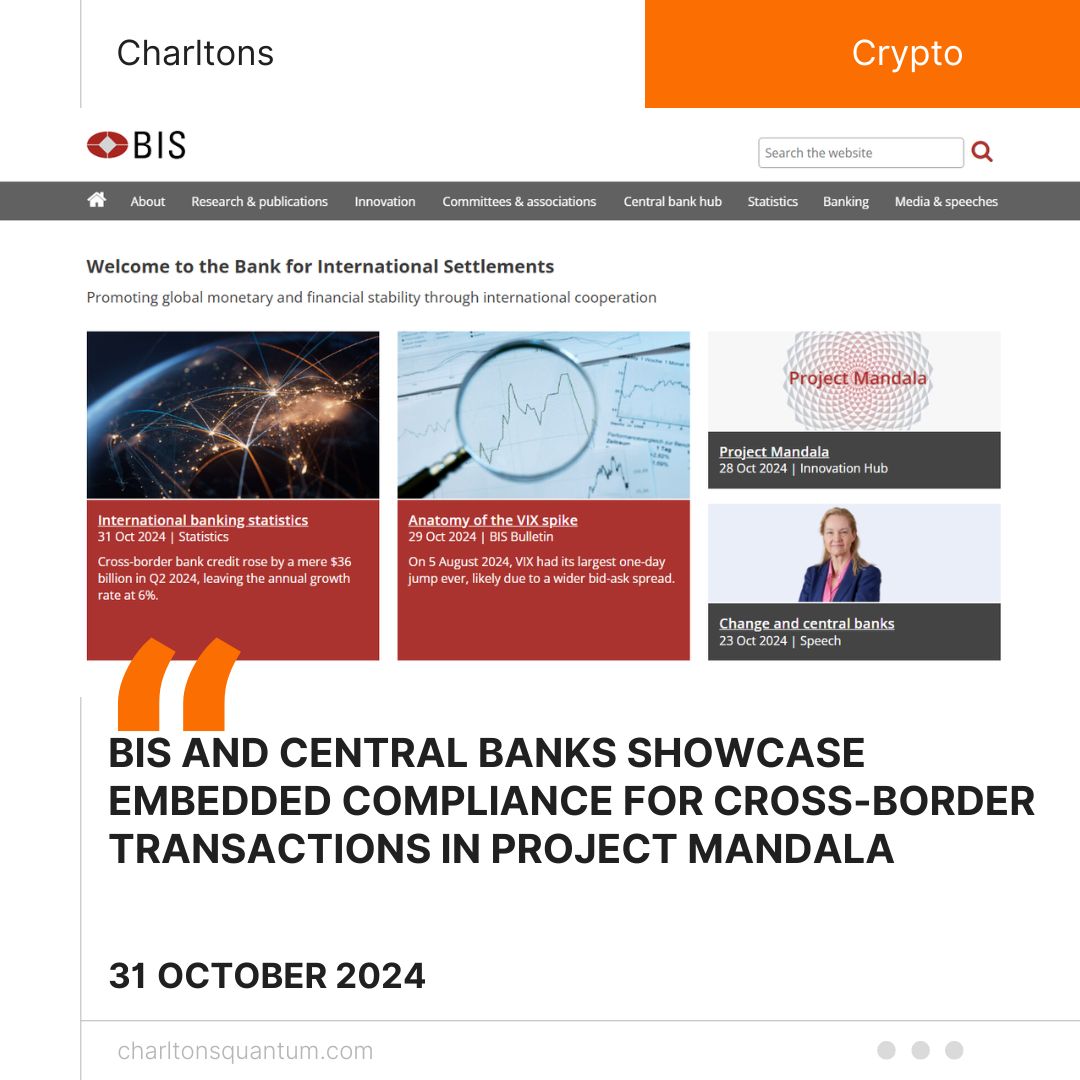
On 28 October 2024, the Bank for International Settlements (BIS), in collaboration with central bank partners from Australia, Korea, Malaysia, and Singapore, announced a development with Project Mandala, which demonstrated the feasibility of embedding regulatory compliance directly into cross-border transaction systems. This proof-of-concept milestone shows that compliance procedures can be automated within payment flows, potentially transforming cross-border financial transactions by reducing costs, increasing speed, and maintaining adherence to varied regulatory frameworks.
Project Mandala, spearheaded by the BIS Innovation Hub Singapore Centre in cooperation with the Reserve Bank of Australia (RBA), Bank of Korea (BOK), Bank Negara Malaysia (BNM), and Monetary Authority of Singapore (MAS), addresses the complex compliance challenges involved in managing regulatory requirements across jurisdictions. By implementing a “compliance-by-design” model, the project automates compliance procedures within the transaction process, thereby advancing the G20’s goal of enhancing cross-border payments. This experimental project reached a successful proof-of-concept stage, incorporating compliance protocols directly into transaction systems without compromising data privacy or regulatory integrity, marking a significant step in streamlining international financial operations.
Project Mandala has achieved a proof of concept, demonstrating a compliance-embedded transaction model that aligns with G20 priorities for enhancing cross-border payments. This approach incorporates programmable compliance features, which allow for automated regulatory adherence throughout the transaction process. The potential benefits of Project Mandala include reduced operational costs, increased transaction speed, and enhanced transparency for financial supervisors and regulators across borders. “Mandala is pioneering the compliance-by-design approach to improve cross-border payments without compromising privacy or the integrity of regulatory checks,” noted Maha El Dimachki, Head of the BIS Innovation Hub Singapore Centre, adding further she stated: “We are optimistic about the potential of these early results to enhance cross-border payments,”
As international regulations and capital flow management policies vary by country, cross-border transactions are often slowed by complex compliance demands. Project Mandala aims to overcome these obstacles by integrating compliance protocols directly into the transaction architecture, allowing for automated, real-time regulatory adherence and monitoring. This model simplifies compliance procedures for financial institutions, increases transaction transparency, and allows central banks to access real-time compliance data, reducing the risk of regulatory breaches and increasing overall efficiency in cross-border lending and investment flows.
Project Mandala incorporates a compliance-by-design approach through a decentralised architecture that unites central banks and financial institutions within a network that automates regulatory compliance. The system consists of three key components: a peer-to-peer messaging system, a rules engine, and a proof engine. This infrastructure ensures that all compliance checks are completed before a transaction is processed. Upon successful compliance verification, the system generates a compliance proof that accompanies any digital settlement or payment across borders. Importantly, Mandala’s structure maintains privacy by allowing compliance proofs to be verified without exposing underlying customer data.
The proof of concept demonstrated two primary use cases that validated Mandala’s operational capabilities:
- Cross-border lending between Singapore and Malaysia: Mandala facilitated compliance for capital flow management (CFM) and sanctions screening, allowing real-time compliance monitoring by central banks.
- Cross-border financing for capital investments between South Korea and Australia: Mandala automated the sanctions screening and CFM reporting for unlisted securities transactions, ensuring compliance while accelerating transaction speed.
Mandala’s dual compatibility with both digital asset and legacy financial systems is another key achievement. The system integrates with emerging digital asset frameworks, such as wholesale central bank digital currencies (CBDCs), as well as with established platforms like Swift. This versatility makes Mandala a modular solution capable of adapting to future digital assets while supporting current infrastructure. For digital asset transactions, Mandala applies programmable compliance that can be embedded within smart contracts, offering a solution that can scale with both traditional and next-generation financial ecosystems.
By embedding compliance directly into transaction protocols, Project Mandala offers a streamlined model for cross-border financial flows, with immediate applications for central banks and regulatory bodies seeking a unified and efficient approach to policy compliance in a globalized economy. As Project Mandala reaches its proof of concept stage, it represents a notable step forward in advancing seamless, compliant cross-border financial transactions in line with global policy priorities.
Sopnendu Mohanty, Chief FinTech Officer, MAS stated: “This collaboration between Singapore, Australia, Malaysia and South Korea to incorporate programmable compliance into payment flows marks a significant development in advancing seamless cross-border financial transactions. MAS is glad to have contributed to the development of Project Mandala, by extending the architecture of Purpose Bound Money to support capital flow management and sanctions screening,”





